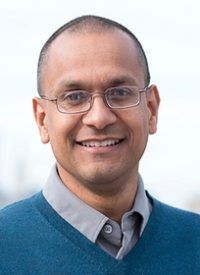
Mindfulness
Former Monk on Mindfulness in the City
The Urban Monk talks about the myths and realities of mindfulness.
Posted July 6, 2016

I recently sat down with Pandit Dasa, author of The Urban Monk, to talk about the myths and realities of practicing mindfulness from the perspective of a man who spent 15 years as a monk living in New York City. We also got into the idea of using mindfulness to help open the mind to opportunity.
Michael Woodward: During your 15 years as a monk what did the practice of mindfulness mean to you and how much is it still a part of your life today?
Pandit Dasa: During my time as a monk and even after I graduated from the monastery, mindfulness was and continues to be a huge part of my life. Mindfulness isn’t just applied when I sit down for meditation. It can and should be applied when I sit down to eat, have a conversation with someone, and when I respond to a challenging and difficult situation. In fact, there is hardly a time when mindfulness can’t be applied. This doesn’t mean that I am successfully applying at all times. I’m far from it. However, I try to make it as much a part of my daily life as possible, sometimes successfully and sometimes not.
When I was living as a monk I learned that not only is it important to get a better understanding of ourselves and our behavior through meditation, but that's it's equally important to share that knowledge and wisdom with others to help improve their lives. So, unlike most monks, I became very active in lecturing on college campuses, high schools, and even in corporations. This interaction allowed me to transition out of the monastic path with ease and I feel it allowed me to blend in very comfortably. This idea of sharing knowledge and wisdom with others continues to be a huge part of my life as I continue to teach people in governments, corporations and college campuses how to remain emotionally balanced, manage stress, develop a work-life balance, and become mindful in all capacities.
MW: Can you disentangle spirituality from the practice of mindfulness? Particularly, for those who are a little uneasy with the Hindu and Buddhist roots of meditation due to their own religious beliefs.
PD: While it is true that meditation has its roots within the Hindu and Buddhist traditions, there is ample scientific research from major institutions showing that the practice can lower stress, anxiety, and depression while improving ones focus, productivity, and improving emotional intelligence. It can be seen as an exercise or work out for the mind. Just as any muscle in our body needs exercise to remain healthy, the mind, which is almost like the control center for our entire body, also needs to be exercised to remain strong and healthy.
MW: What does the word opportunity mean to you? How you see opportunity now in your civilian life?
PD: As a monk I was taught that opportunity meant having a chance to serve others. The service would involve helping others uplift their consciousness, behavior, and approach to life. Serving others meant that for a little while we could stop thinking about our own selves and have an opportunity to experience the joy of selflessness. For me, opportunity means more of the same now that I’m no longer a monk. I look for opportunities where I can share and spread the message of mindfulness and meditation to larger groups of individuals from very different backgrounds because I believe that if more of us could become more mindful of our thoughts, speech, and actions, the world will become a better place.
MW: What is really happening when we meditate? How can meditation help us to be more attuned to spotting opportunity?
PD: Research has shown the average person can have up to 50,000 thoughts per day. A lot of these thoughts are negative. Many of our thoughts are reflections into our past and or plans or fears about the future and most of our thoughts can’t be recollected. When we meditate, we get in touch with the prominent thoughts that keep replaying in our mind and become aware of how they are impacting us. This is important because thoughts lead to speech and action and many times we are not aware of why were saying and doing the things we’re doing. The more we become aware of our feelings and emotions, the better control we can have over ourselves and potentially change any negative behavior to a more neutral or positive behaviors.
For meditation to have an impact, it needs to be practiced with some regularity otherwise the effects will be minimal. If we only go to the gym once or twice a year, we won't feel much of a difference. The ideal situation is if we can set aside even five or seven minutes everyday to engage our mind in meditation.
MW: What is one simple practice a novice can try out on their own to get started?
PD: To get started, one can simply close ones eyes and start to take deep breaths. Focus on filling the lungs completely and emptying out the lungs with the exhalation. Try your best to not plan your schedule or think about the past. It's natural for the mind to wander however when it does, gently bring it back to your breath and to the present moment. As you begin to have thoughts, become aware of your thoughts and how they are impacting you but try not to get too absorbed in those thoughts.

